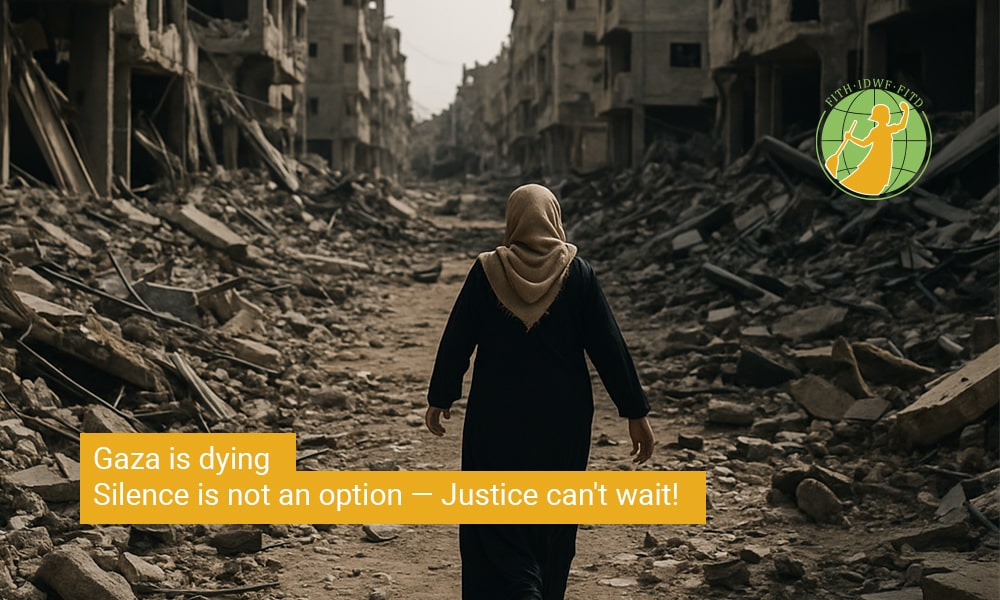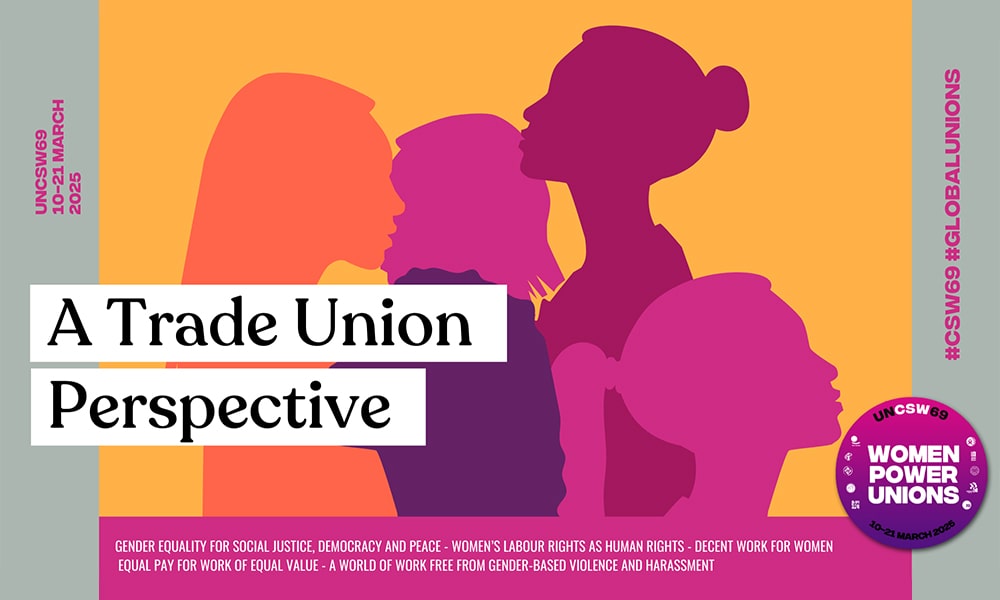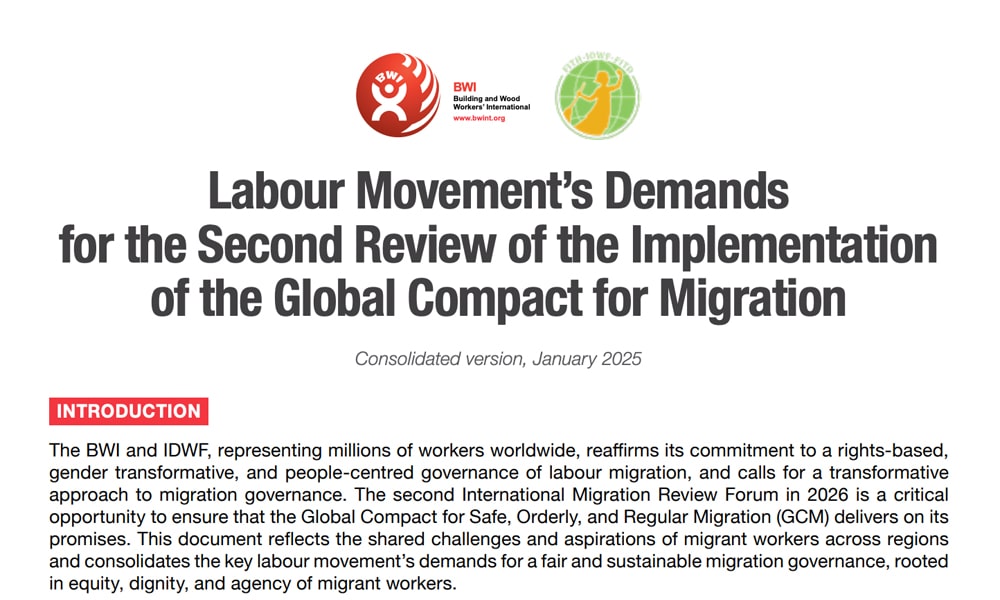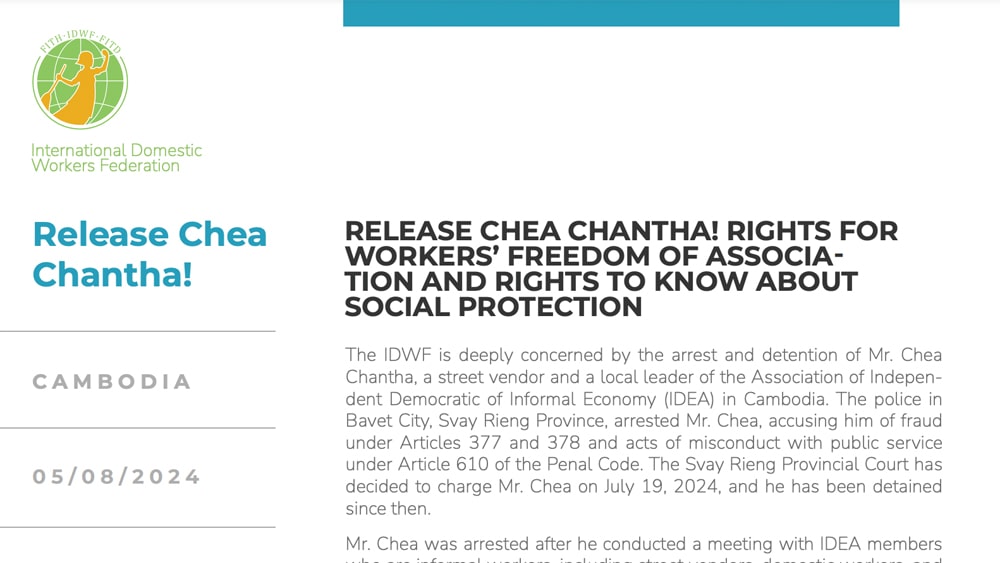International Day of Care and Support 2024
Care is the engine behind humanity. Although it has historically been labeled as an “unproductive” activity —a mere extension of “women’s work”—the truth is that care work makes all other work possible and accounts for 9% of the global GDP. Domestic workers make up over a quarter of the workforce providing essential care that sustains societal well-being and drives economic prosperity.
International Day of Care and Support is an opportunity to reflect on the huge social and economic value of care and of those who provide it. It’s time to take action, investing in care systems and policies that ensure everyone’s right to receive and provide care in decent conditions. And it’s also time for domestic workers’ voices to be central in shaping a just and inclusive care economy.
“There is not one of us, humans on this planet, who is not touched by care. We are all providers and recipients of care. Although our degree of dependency on care varies at particular moments in our lives, we all need care from womb to tomb. If we see care as a need, a right, and as work, then we’ll have a philosophy and a framework for action to transform societies and systems into ones that are equitable and sustainable.”
Adriana Paz, IDWF’s General Secretary
Care as a Need
While deficits in care services are rising, the demand for care is also growing rapidly and steadily: by 2030, there will be 2.3 billion people worldwide in need of care (ILO 2018). If not properly addressed, this scenario could trigger a global care crisis, with serious consequences for both care providers and recipients, increasing injustice and gender inequalities. States should urgently adopt transformative policies and invest in care and social protection systems that ensure decent work for care workers and universal access to quality care services for everyone. If well managed, the care economy has the potential to create 270 million new jobs by 2030 (ILO 2022).
Care as Decent Work
Paid domestic workers perform a wide range of skilled care tasks, both indirect and direct. Globally, only those employed in private households account for 25% of the care workforce. Yet, despite the essential role of domestic work in the functioning of households and the well-being of families, which makes all other work possible, it is often considered unskilled labor and is therefore undervalued both socially and economically. This translates not only into precarious working and living conditions for DWs but also into various forms of discrimination, abuse, and violence. Whether due to their exclusion from labor laws, lack of implementation of existing legislation, or high levels of employer non-compliance, domestic work records the highest decent work deficits within the care sector. Migrant DWs are additionally subject to discriminatory migration policies that not only exclude them from legal and social protections but also expose them to violations of both labor and human rights.
ILO Convention 189 not only protects all domestic workers, by equating their rights with those of other workers, but also recognizes them as care workers. Therefore, it should be a central component of national care policies and systems. Ratifying and effectively implementing it is a responsibility of all states that proclaim themselves committed to sustainable development, social justice, and respect for human rights.
Care as a Human Right
Care is neither a luxury nor a privilege: care is a universal need and therefore a human right. Domestic workers, nearly 80% of whom are women with family responsibilities, also have care needs for themselves, their children, their elderly relatives, or those with disabilities or long-term care needs. But despite providing care to so many others, DWs do not enjoy this right.
In law, a large proportion of women DWs are excluded from maternity leave provisions (46.5%) and entitlements to maternity cash benefits (47.6%). Even more are excluded in practice due to their informal status (over 80% of DWs are in informal employment). Only 13.4% of DWs are covered by family benefits, the lowest coverage rate among the nine social security benefits under contributory schemes. Additionally, DWs often lack access to childcare services. This reflects a global gap in the provision of a statutory right to childcare services, and even when this right is legally mandated, effective coverage remains extremely limited, especially for the most vulnerable—a group to which many DWs belong (ILO 2024)
Social protection and care policies should be complementary. Recognizing DWs workers as care workers means ensuring decent work for them, including them as care providers in national care policies and social security systems, and also guaranteeing their access to social protection and care services for themselves and their families. There is an urgent need to redesign the social organization of care within the ILO’s 5 Rs framework, conceiving it as a public good under the leading role of the state as a guarantor of human rights. Investing in comprehensive care systems is key to promoting more just, equitable, and inclusive societies, where everyone can exercise their right to care.
Our voices matter!
We are over 76 million DWs providing both paid and unpaid care that subsidizes the global economy and ensures the sustainability of life. As a powerful movement, we raise our voices today to demand the full realization of our rights to decent work and access to care policies and services. We fight and organize for:
- An end to the exclusion of DWs from legal protection.
- Ratification and effective implementation of ILO C189.
- Decent working conditions: guaranteed minimum wage, written contracts, and access to social protection.
- Pathways to formalization: skills recognition and training linked to formal employment opportunities.
- Public policies and robust care systems that recognize DWs as part of the care workforce (as both care providers and recipients).
- The right to freedom of association, organizing, and collective bargaining.
- Strong protection against discrimination, intersectional bias, abuse, violence, and sexual harassment.
- Social dialogue: voice and representation in the development of policies and in decision-making spaces related to care and domestic work.
- Coherent labor, migration, and care policies that ensure migrant DWs workers the same rights and protections as other workers.
Domestic workers play a key role in building societies that dignify care workers and recognize the human right to care for all human beings, leaving no one behind. Our voices matter!
#DomesticWorkIsCareWork
#InvestInCare
Download here






